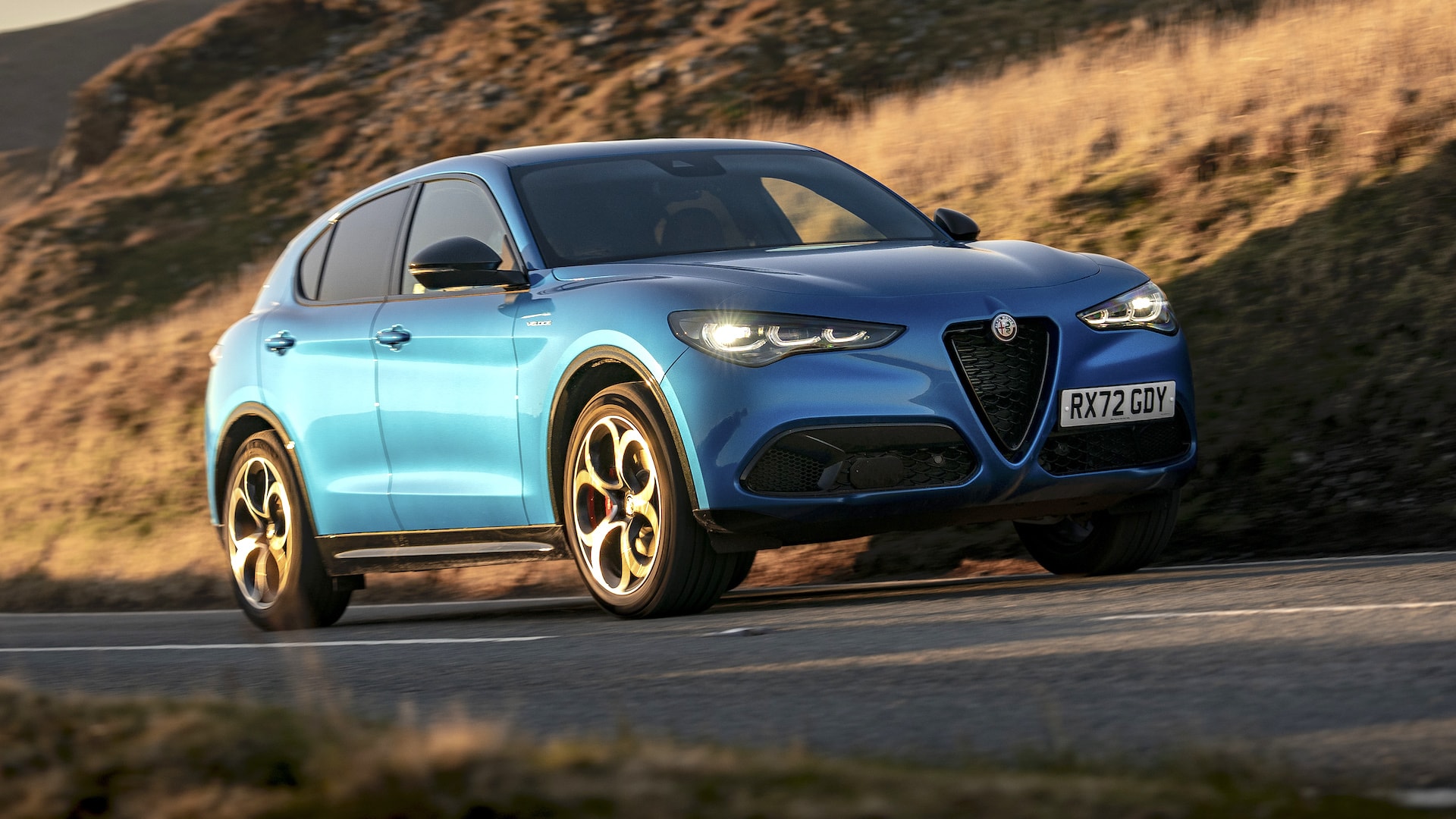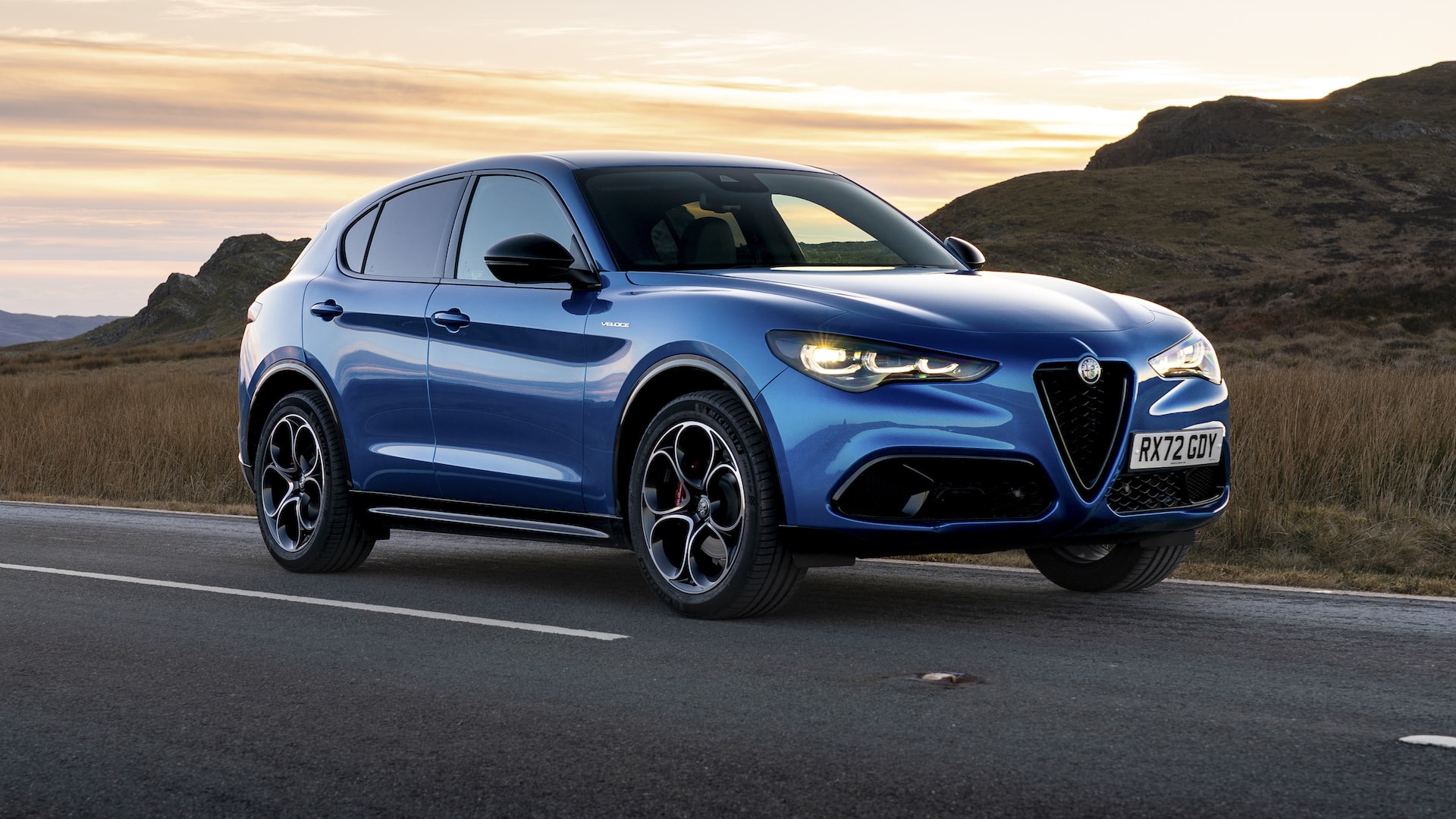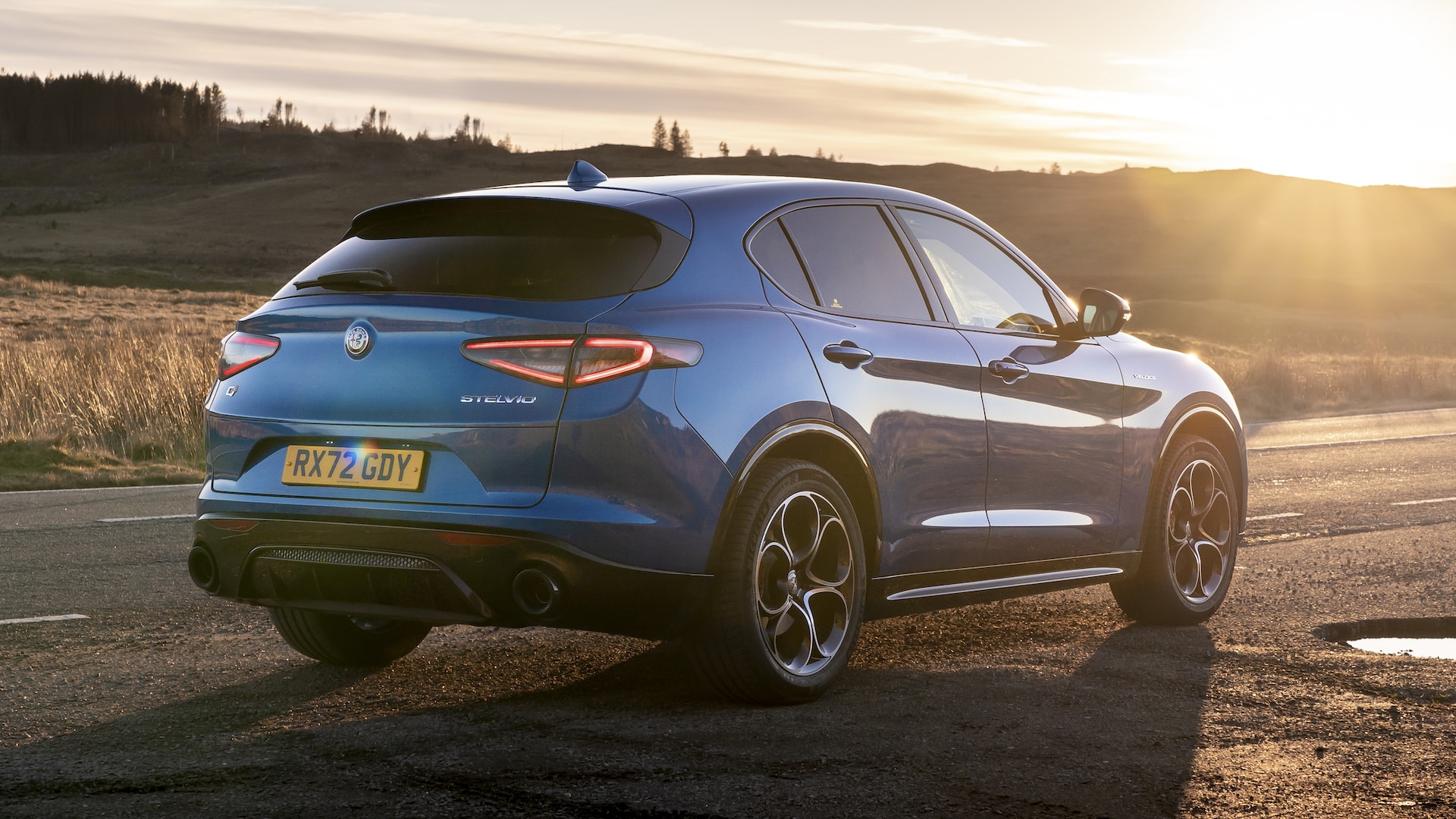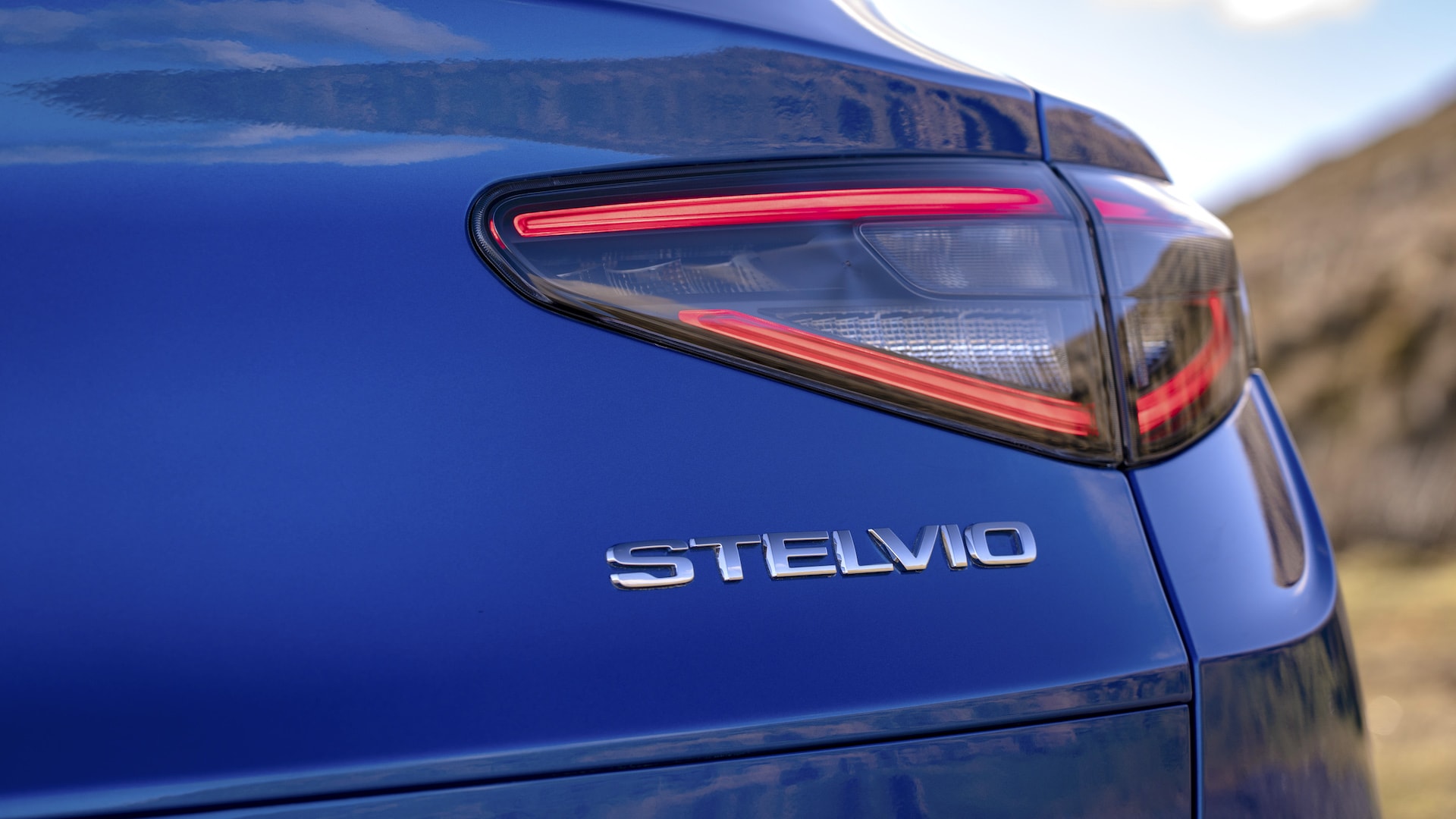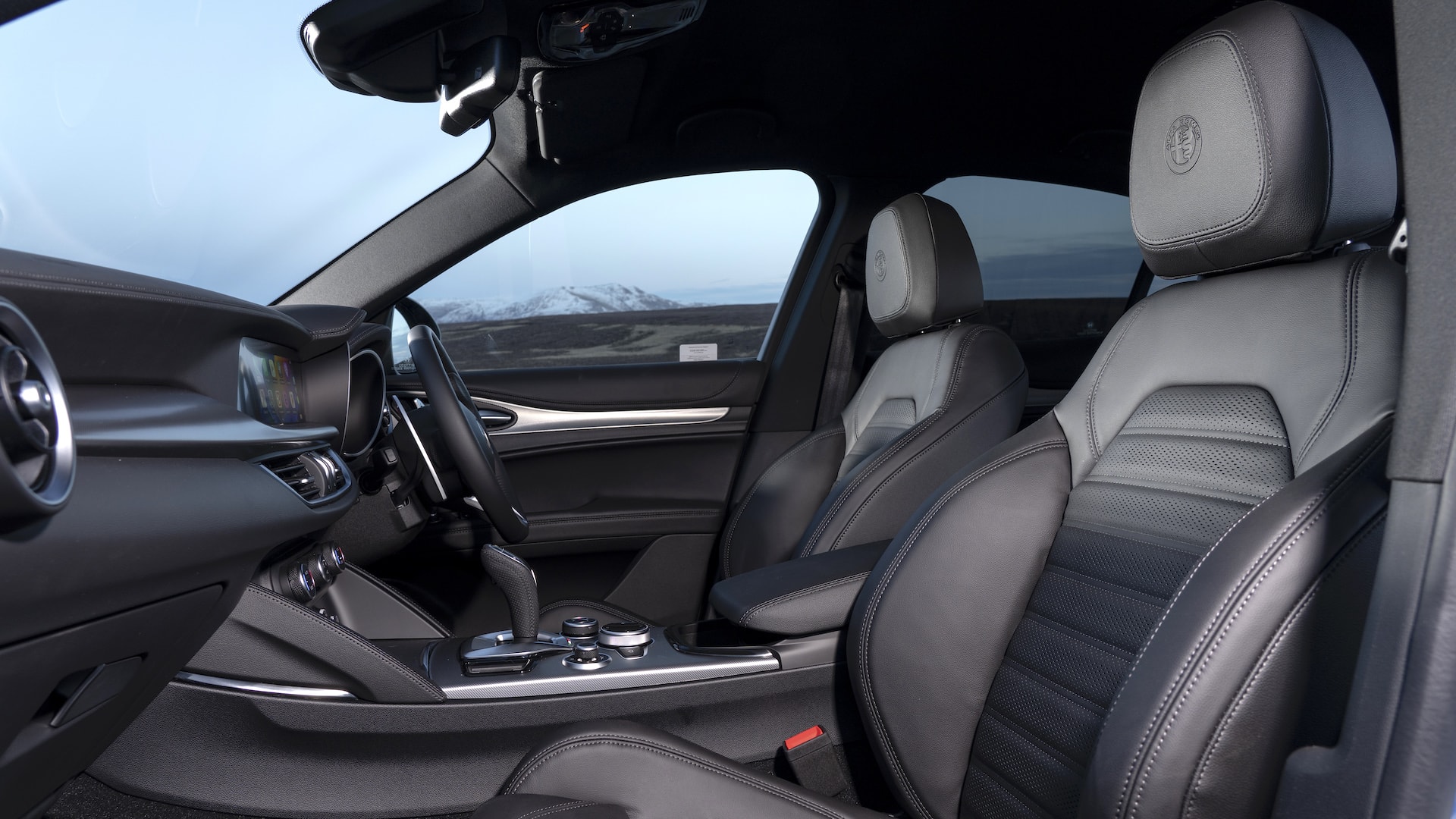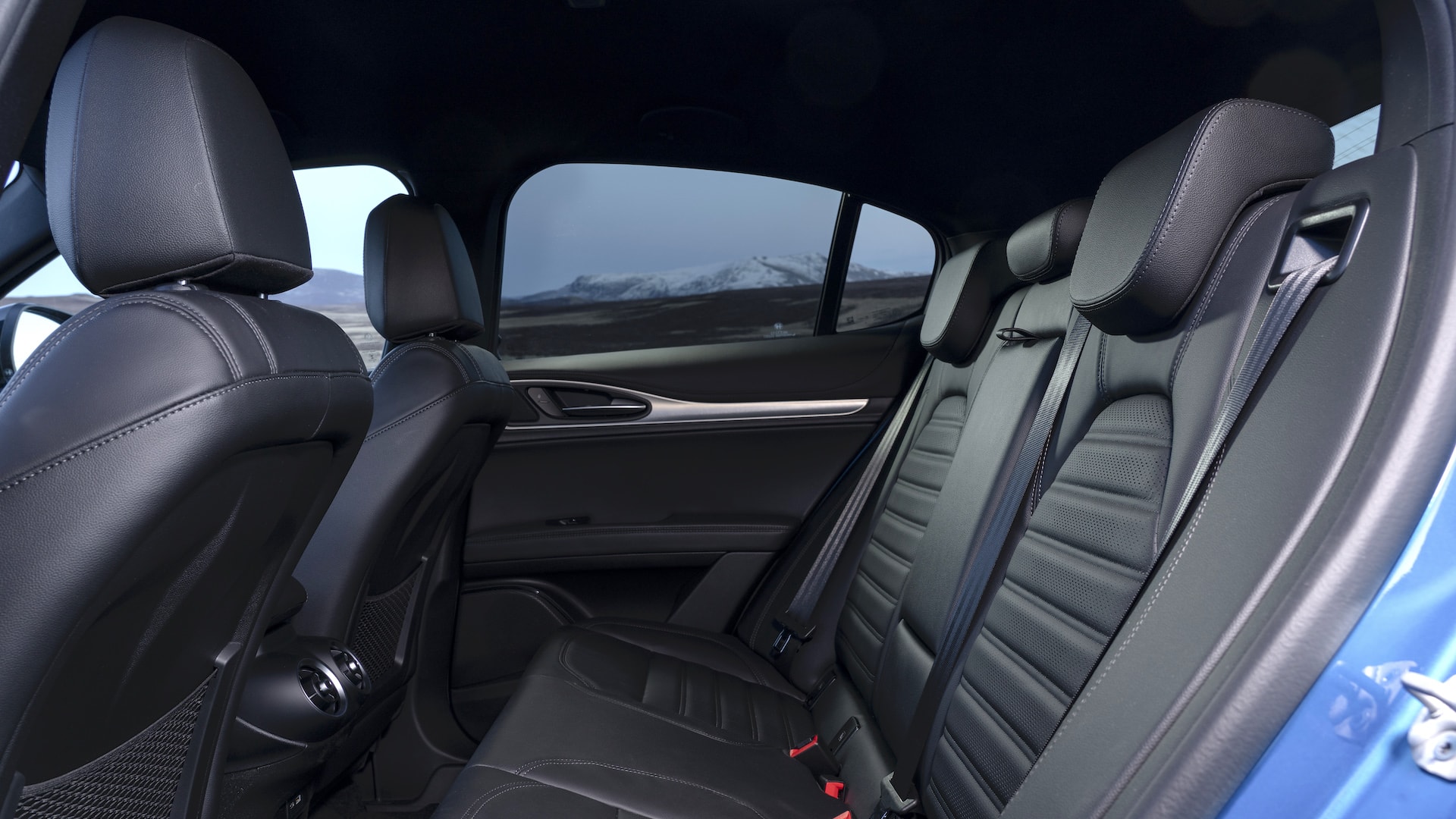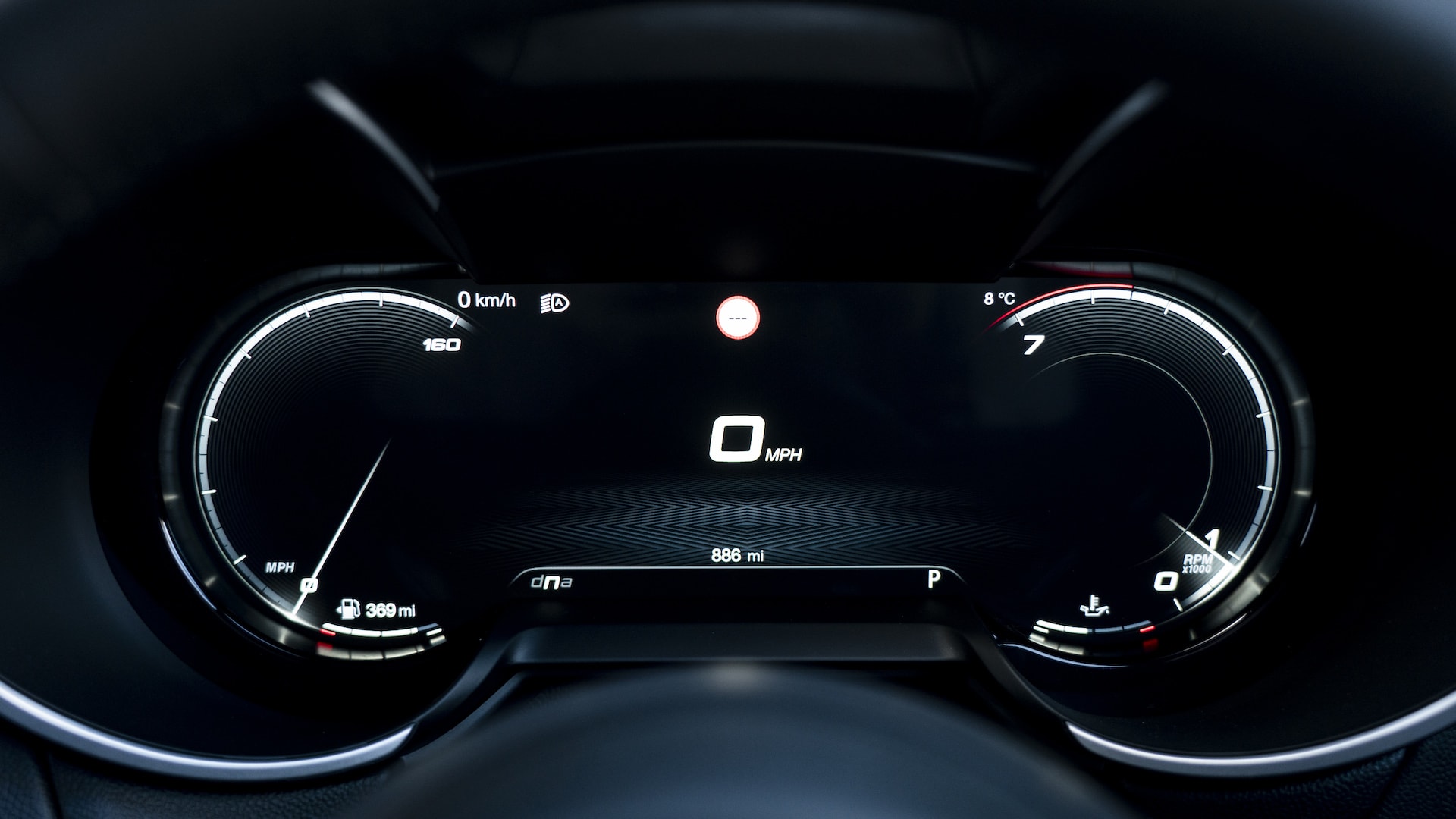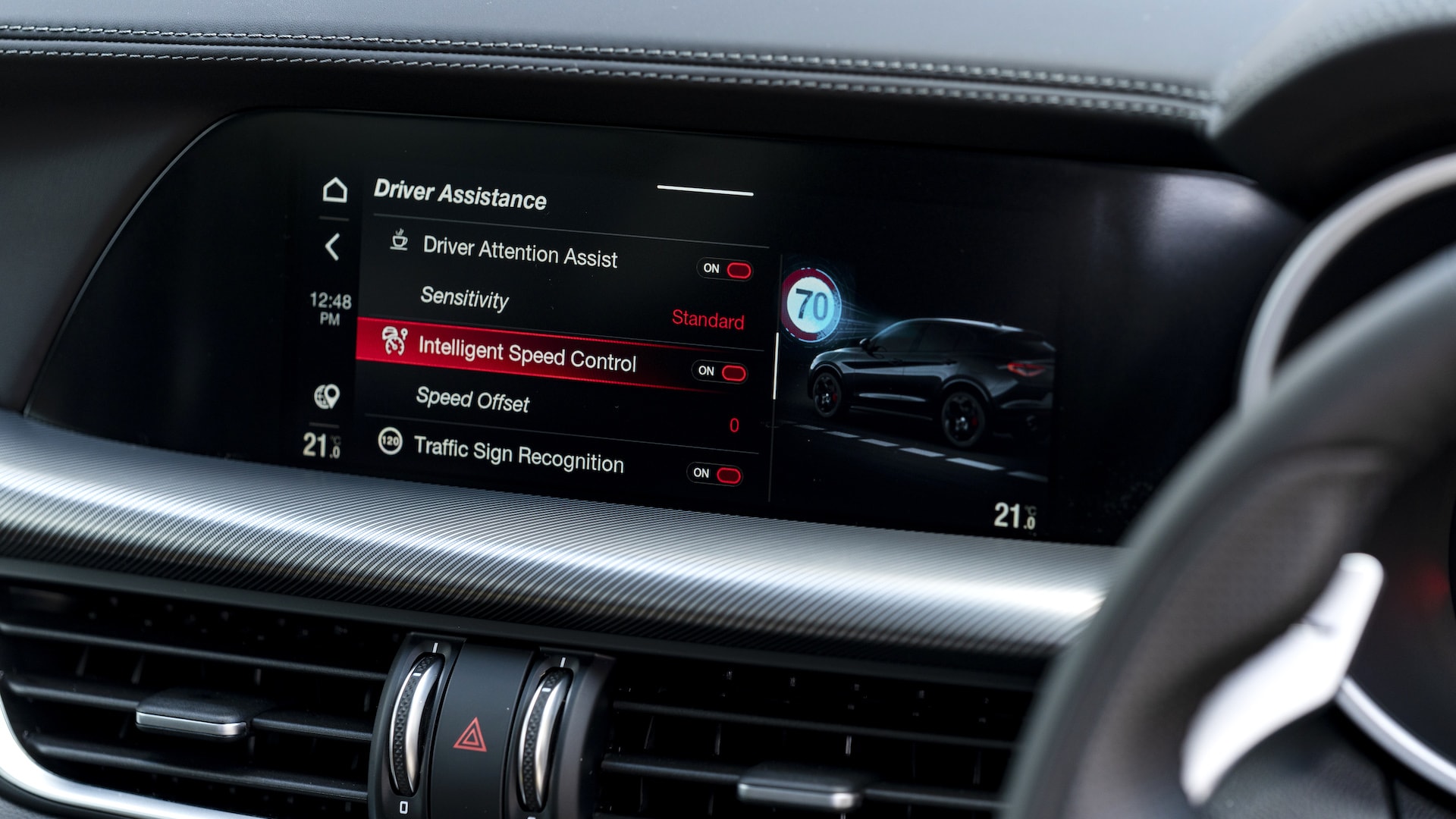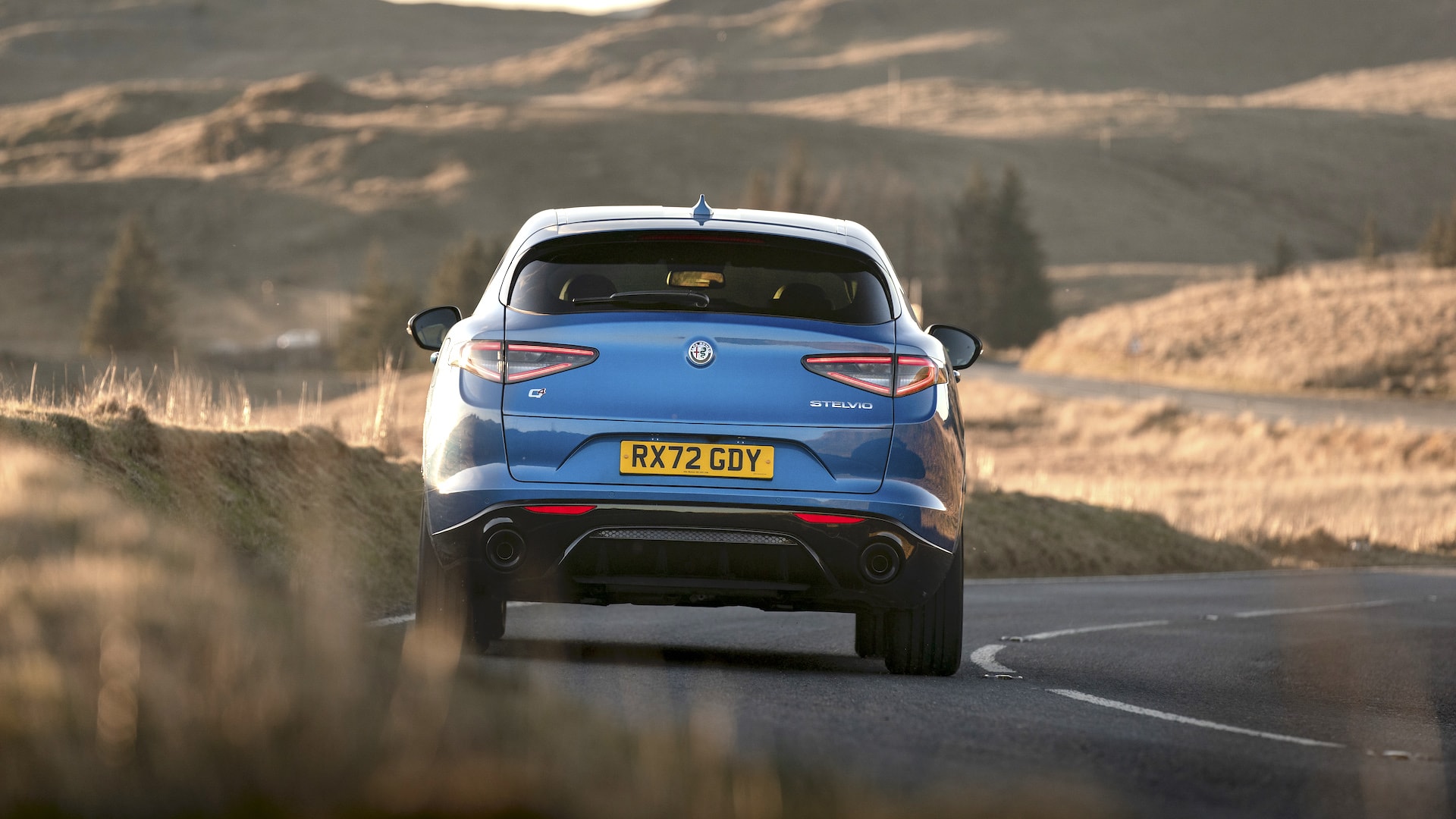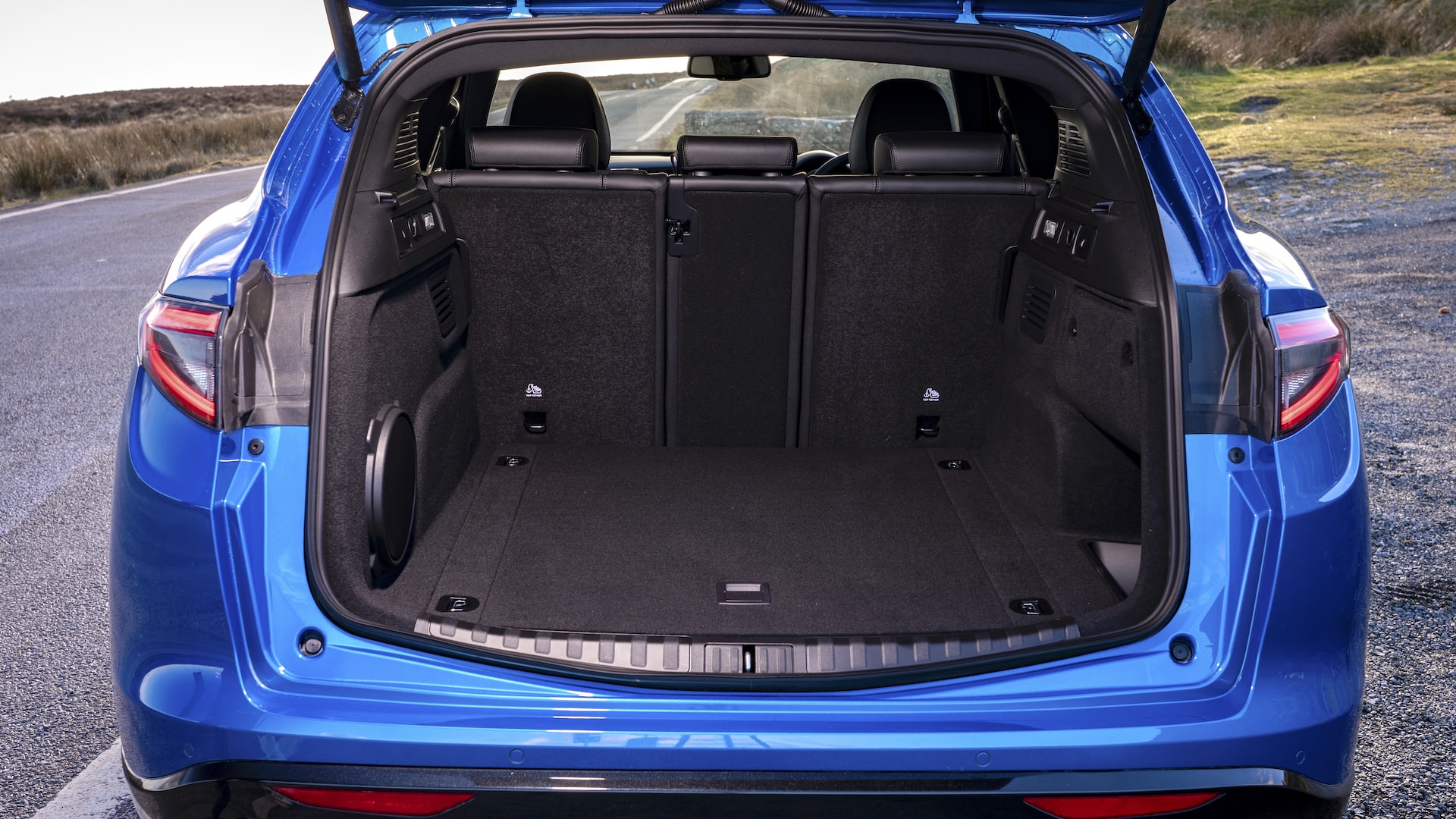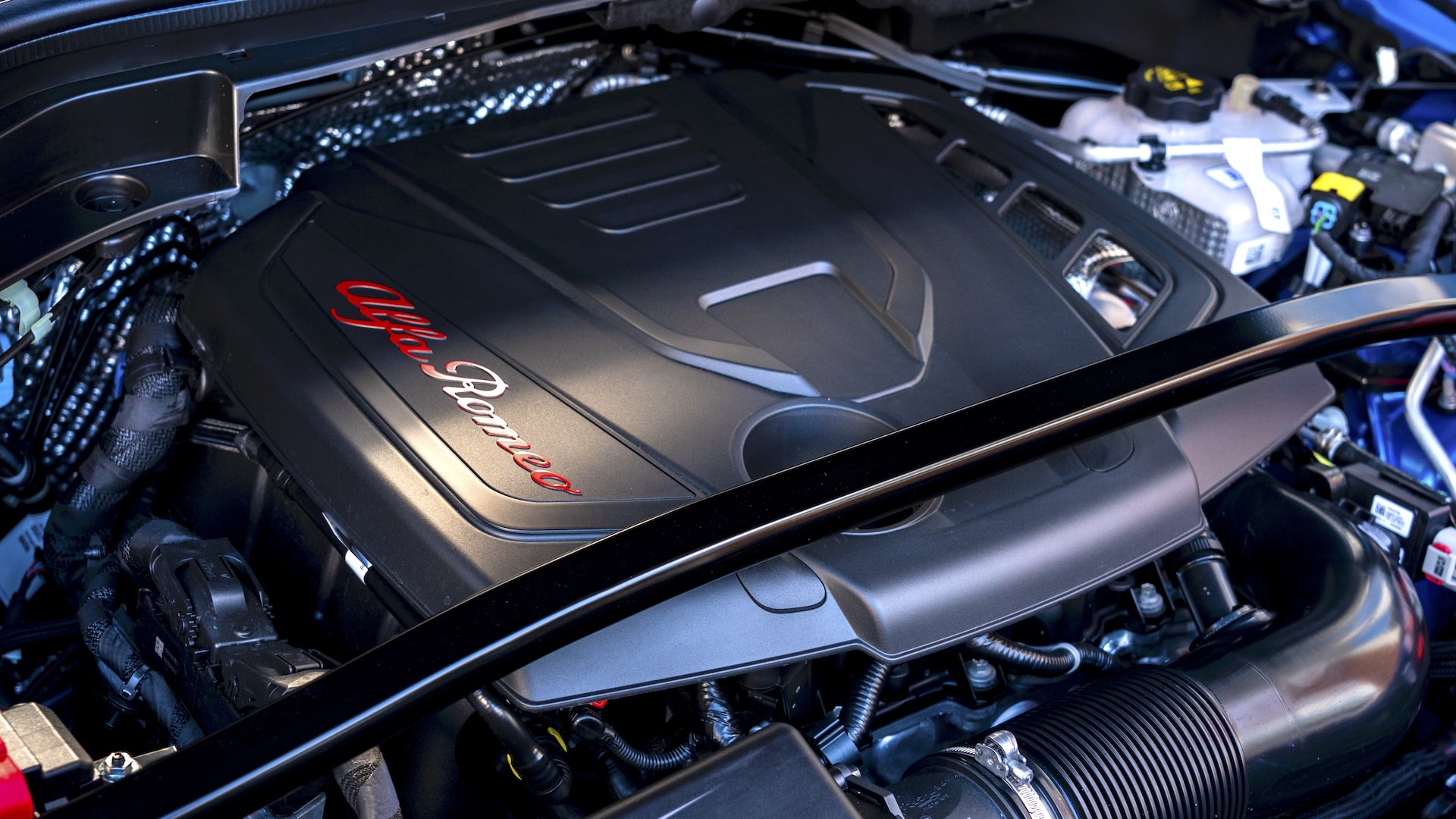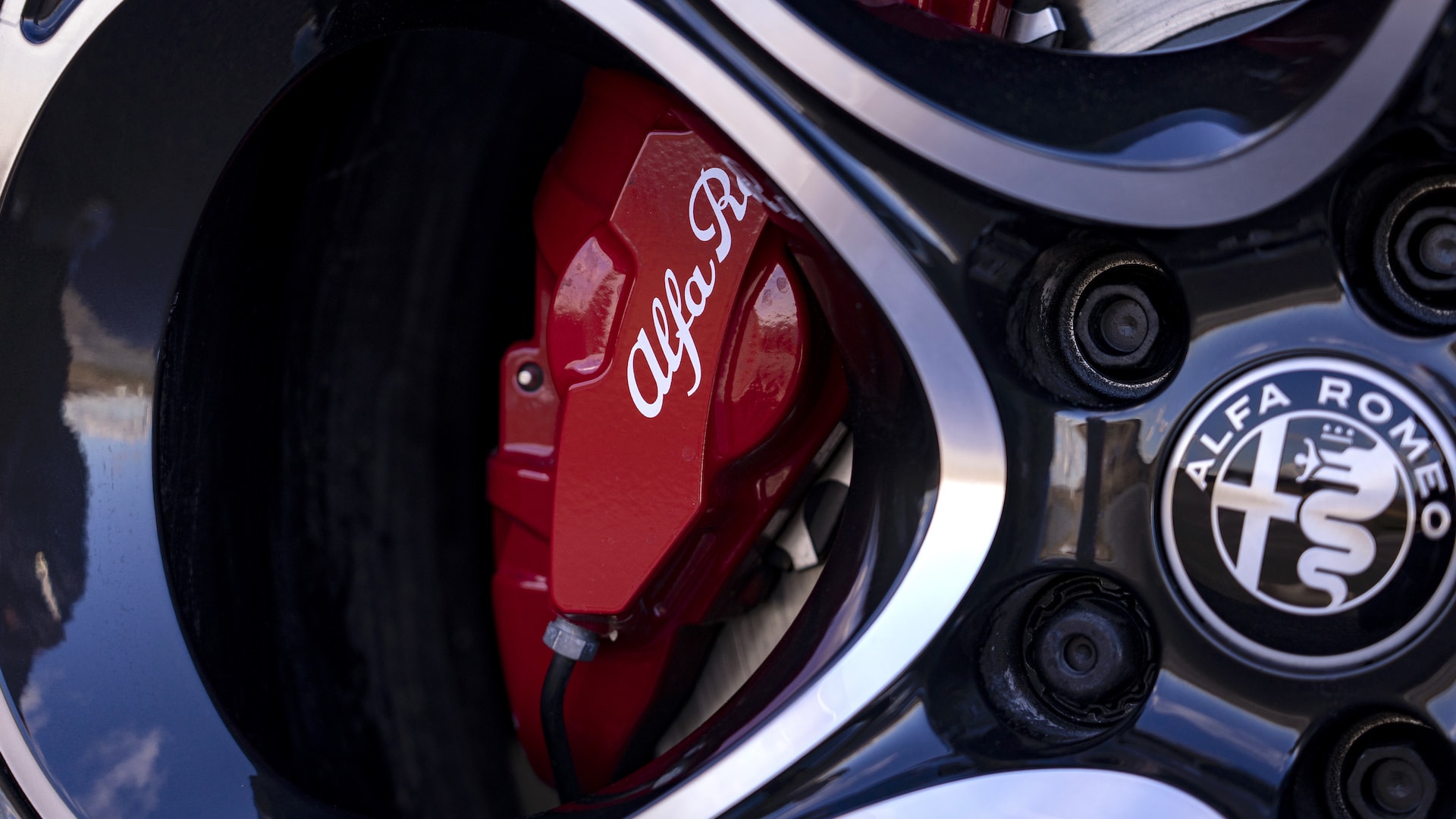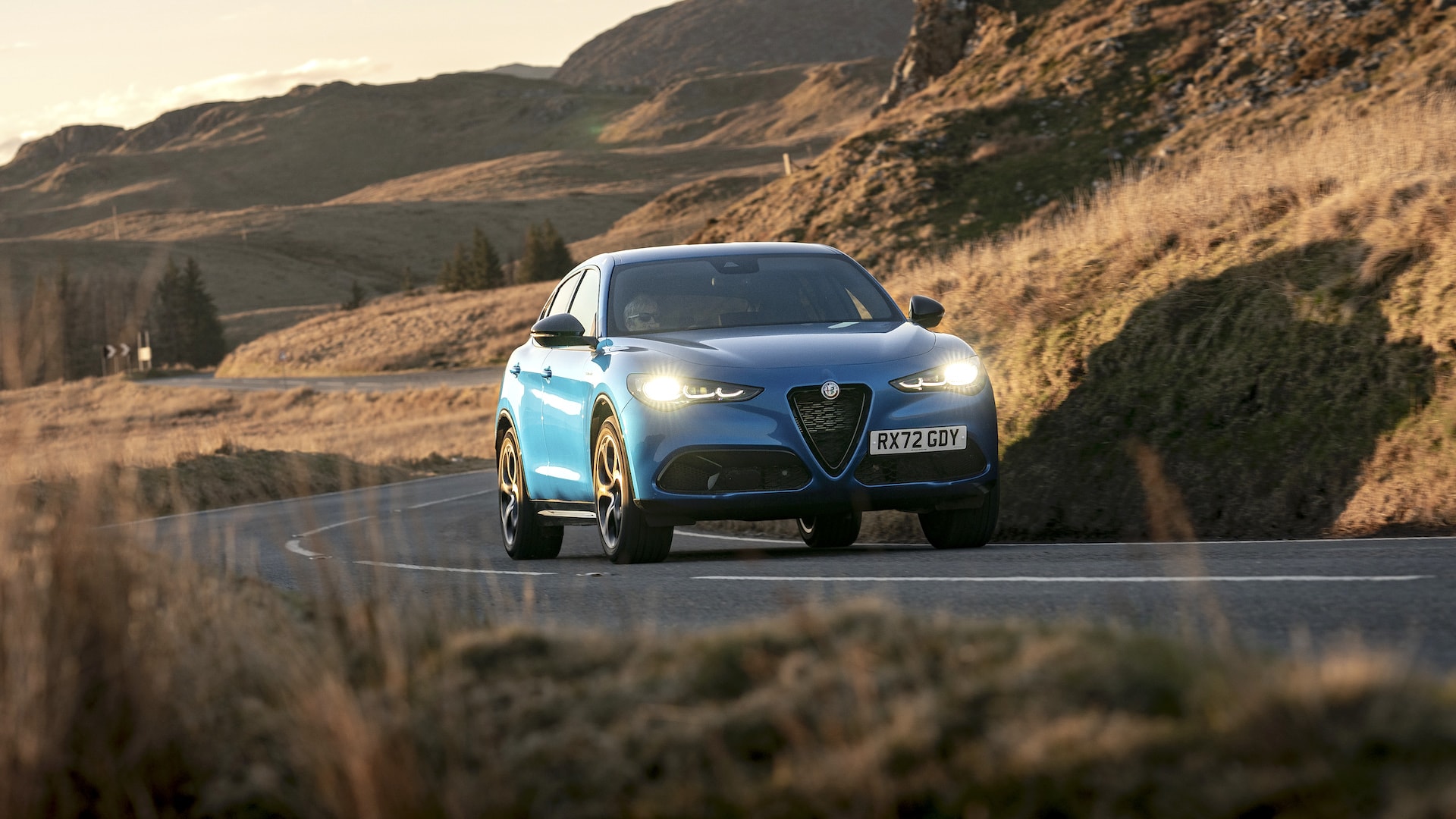Until quite recently, the notion of an Alfa Romeo SUV would have seemed like sacrilege to the Italian marque’s passionate fans. Yet today, two-thirds of Alfa’s model range is made up of SUVs.
The Stelvio was the first to arrive in 2016, and has recently undergone a facelift to keep it looking fresh. This includes new LED matrix headlights, inspired by the smaller Tonale SUV launched last year.
More SUVs will follow, including battery-powered versions, as Alfa shifts towards selling EVs only by 2027. For a company famed for its internal combustion engines, it makes for a dramatic road ahead.
No hybrid option
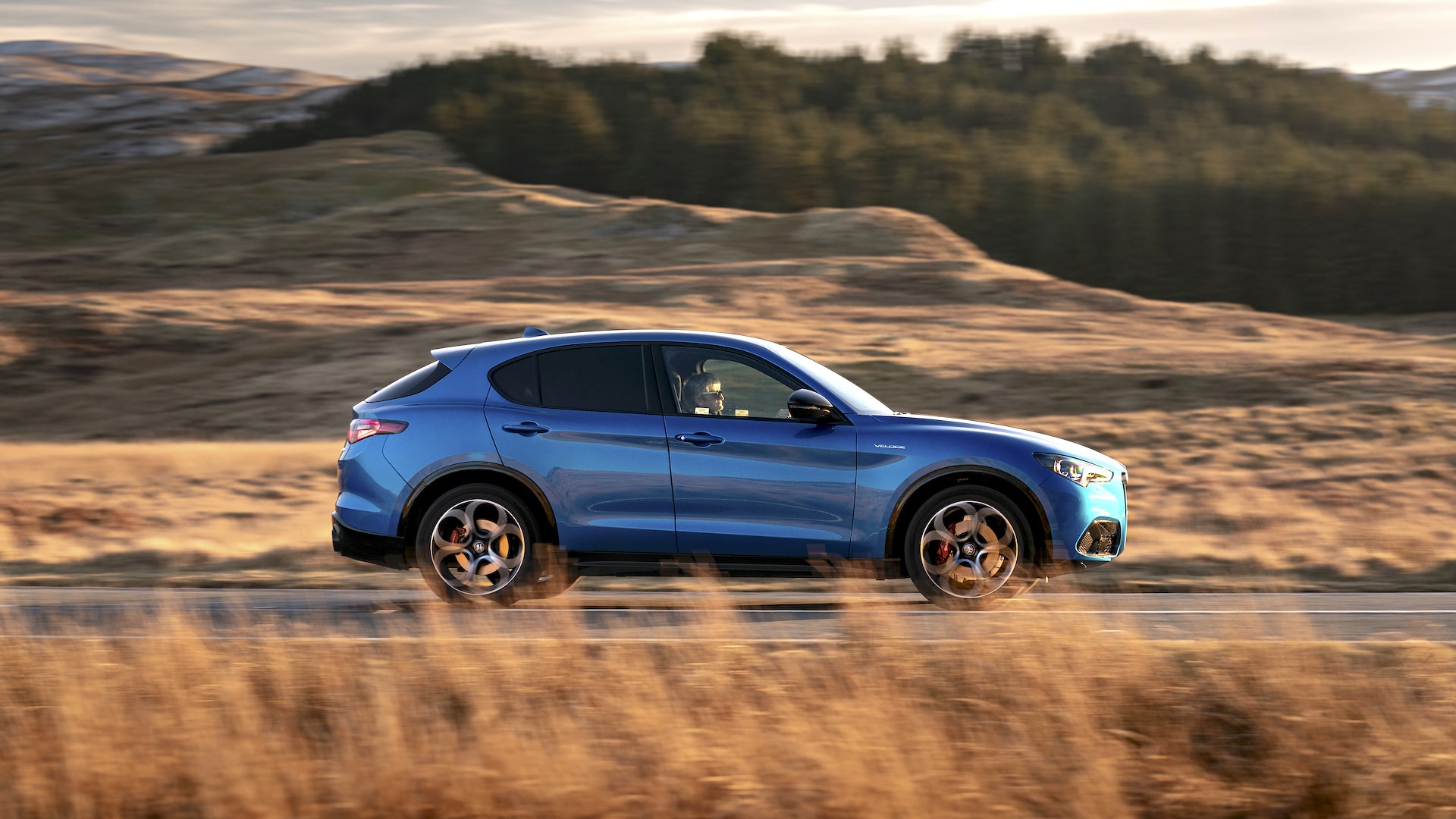
For the present, conventional petrol and diesel engines remain on the menu. These include the 280hp 2.0-litre turbocharged four-cylinder petrol engine powering our Veloce specification test car. There is also a 2.2 diesel, plus a phenomenal Ferrari-built V6 in the Stelvio Quadrifoglio.
Like all Stelvio models, the 2.0 petrol engine is combined with an eight-speed automatic gearbox and Alfa Romeo’s Q4 all-wheel-drive system. The result is a 0-62mph time of just 5.7 seconds and top speed of 143mph. While this turbocharged motor does sound good, it needs to be worked hard to deliver lively performance. Thankfully, the auto ’box shifts quickly, and features large and very tactile steering column-mounted paddles for manual changes.
Making use of the 2.0 engine’s full 280hp has a noticeable effect on fuel consumption, however. Official figures state the Stelvio can average up to 33.2mpg, but the reality is likely to be closer to 25mpg.
The diesel-powered Stelvio is more efficient, averaging up to 46.3mpg. However, a plug-in hybrid is noticeable by its absence from the range. As many newer rivals offer hybrid options, the Stelvio has been somewhat left behind. Instead, Alfa Romeo is pitching the new electrified Tonale as the choice for fleets, thanks to its much better Benefit-in-Kind (BiK) company car tax rates.
Traction in action
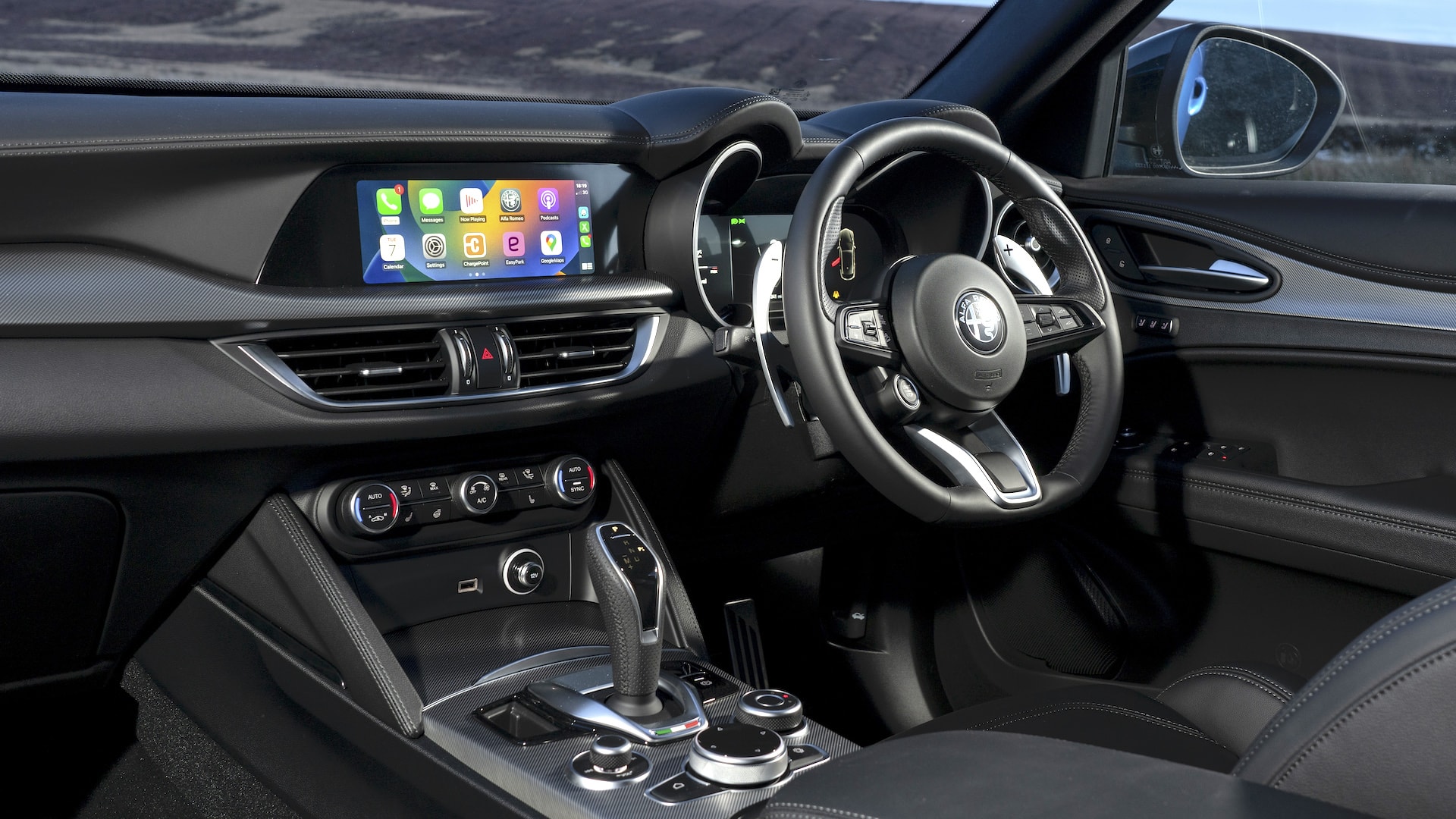
Whichever engine you choose, the Stelvio remains one of the best handling SUVs on sale. Being based on the impressive Giulia saloon, it has incredibly direct steering and ideal 50:50 front:rear weight distribution.
To say it handles like a higher-riding version of the Giulia saloon is no exaggeration, such is the level of its ability. Thanks to the Q4 all-wheel-drive system, traction is never an issue, allowing for swift cross-country performance.
The price for such dynamic handling is a firm ride. Lower speeds make this tautness apparent, but it does improve with speed. Larger alloy wheels, such as the 20-inch rims on the Veloce, also make it feel busier.
The interior will feel instantly familiar to anyone who has driven an Alfa Romeo Giulia, too. The dashboard layout and controls are almost identical, save for the higher seating position. Although Alfa has worked improving perceived quality, it still lags behind premium German rivals. Adding the optional £2,250 Premium Interior Package helps, with extra leather to cover the dashboard and door panels.
At least the Stelvio has a decent-sized boot, with a 525-litre luggage capacity and a powered tailgate on Veloce and Competizione models. Space in the front seats is generous, but the sloping roofline eats into headroom in the rear. Wrestling a child seat into the standard Isofix attachments is actually more awkward than in the Giulia saloon.
A heart-over-head SUV
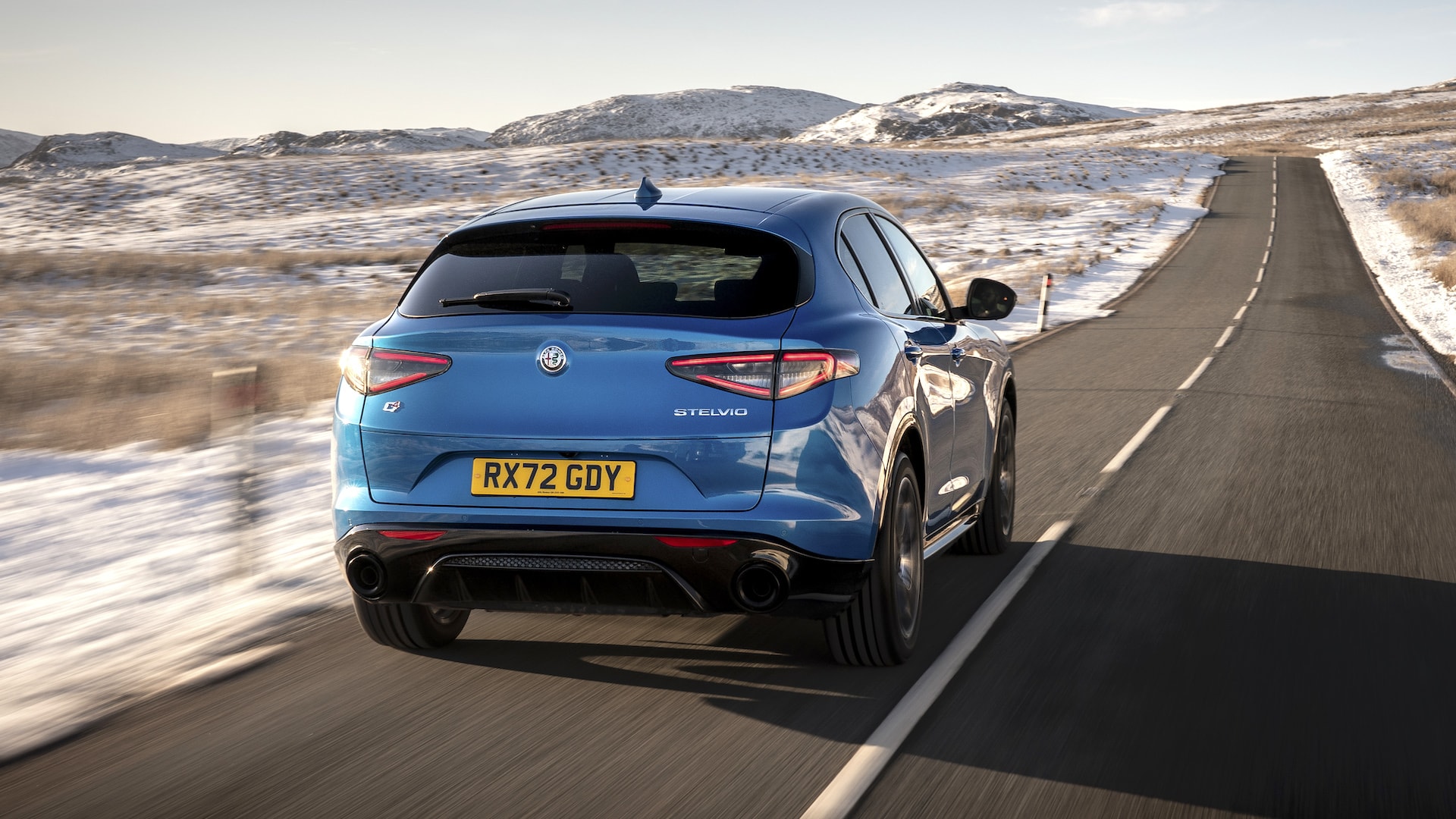
Standard specification for the Stelvio is generous, including a 12.3-inch digital dashboard, adaptive cruise control and satellite navigation, plus Apple CarPlay and Android Auto smartphone connectivity.
This does help to justify the list prices, which start at £47,355 for a diesel-powered Stelvio in Sprint trim. A 2.0-litre turbo petrol Veloce costs £54,250 before any options are added.
Purists will no doubt remain unconvinced by the idea of an Alfa Romeo SUV, but the Stelvio is more than good enough to justify the badge on its grille. The styling and driving experience alone make it appealing, even if most competitors do interior quality and practicality better.
ALSO READ:
Best family SUVs to buy in 2023
Your EV questions answered on Motoring Electric
Rivals: Audi Q5, Jaguar F-Pace, Volvo XC60
